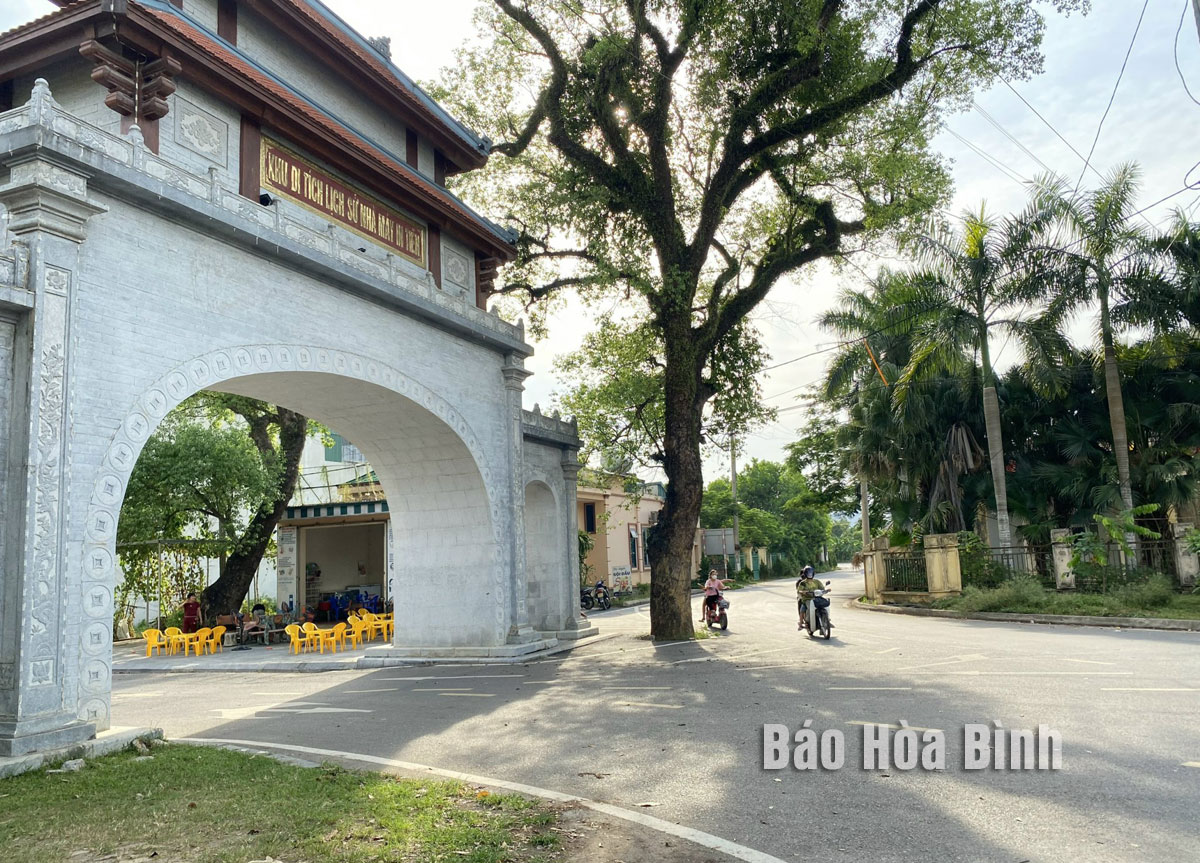Over the recent years, Lac Thuy district has focused on developing comprehensive urban infrastructure in a modern and sustainable manner. This development aligns with the district's strategic plan, helping boost socio-economic growth, ensuring national defense and security, and transforming the district's landscape.
Roads in Phu Nghia commune (Lac Thuy) are invested and built to meet standards, meeting the travel and goods trade needs of the people.
Key investments have been made in major transportation projects,
including the construction of several vital roads. These projects include the
No. 438 route with a total length of 7km; the No.438B route in Khoan Du – An
Binh commune with a total length of 24km; and Ba Sao – Bai Dinh route with a
total length of 11.2km. Between 2021 and 2023, the district invested 364.757
billion VND (14.4 million USD) in 124 projects to improve and upgrade the
transportation network.
Regarding electricity infrastructure, the district allocated 43.5 billion VND
from 2021 to 2023 to build new substations and upgrade existing electrical
components. This investment ensured a stable and safe electricity supply for
all residents, with 100% of households now connected to the national grid.
Lac Thuy also made substantial investments in water infrastructure,
particularly in irrigation systems. The district is home to 73 reservoirs that
support the irrigation for 5,563 hectares of agricultural land.
Over the past three years, 17 projects have been undertaken to
repair and upgrade these facilities, with a total investment of 44.230 billion
VND.
Commercial
infrastructure has also seen significant development, contributing to the
district's socio-economic growth and improving residents' life quality.
Currently, there are 11 markets across various communes and towns. They were
constructed with funds from the state budget, national target programmes, and
social contributions.
The district's postal and telecommunications infrastructure has expanded, with
internet usage rates reaching around 50%. There are 13 postal service points,
and all 10 communes and towns have local radio stations, facilitating the
communication and information dissemination work.
Education infrastructure has also been a priority, with efforts to standardise
facilities and equipment. The number of schools meeting national standards has
increased annually, currently standing at 28 out of the 33 schools, which is
84.8%. This focus aims to enhance the quality of comprehensive education in the
district.
Healthcare infrastructure has also been bolstered, with one medical centre and
10 medical stations receiving new investment and upgrade. This has improved
healthcare services, providing residents with better access to diverse and
high-quality medical services locally.
Additionally, investment in cultural, sports, and tourism infrastructure has
improved the community's quality of life and increased the district's tourism
appeal.
Deputy Chairwoman of the Lac Thuy People's Committee Hoang Thi Thu Hang stated
that the district will continue to prioritise infrastructure development. This
includes addressing challenges in project implementation, mobilising resources,
and focusing on critical infrastructure like transportation, water systems, and
climate change mitigation projects. The district also aims to improve
administrative processes, making it easier for investors and ensuring that
infrastructure projects proceed efficiently and transparently.



